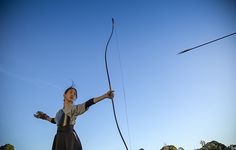My children both have milestone birthdays this month. My daughter is celebrating her "sweet 16th" this weekend, and my son — taller than me already, and growing by the hour — will turn thirteen in a few weeks. Needless to say, I'm happy for them, and excited to make their special days as memorable as possible.
But I'm also ambivalent, sad, and shaky. "Mary kept all these things," St. Luke writes of Jesus' mother, "and pondered them in her heart." I understand. I'm keeping and pondering right now, too. Pondering motherhood, pondering the future, pondering God. With every passing month and year, I'm keeping in my heart all that it means to let the childhoods of my children go. I didn't know the keeping would prove so costly. I didn't know it would hurt.
The wisest piece of writing I've ever read about children comes from a poem by the Lebanese-American poet, Khahil Gibran. In his book, The Prophet, he writes:
Your children are not your children.
They are the sons and daughters of Life's longing for itself.
They come through you but not from you,
And though they are with you yet they belong not to you.
You may give them your love but not your thoughts,
For they have their own thoughts.
You may house their bodies but not their souls,
For their souls dwell in the house of tomorrow, which you cannot
visit, not even in your dreams.
If someone had handed me Gibran's poem sixteen years ago, I would have laughed. Laughed, rolled my eyes, and argued. Of course I would give my kids my thoughts! They were my kids! And anyway, my thoughts were so hard won and brilliant — why wouldn't my children accept them as their own?
Many years, mistakes, and humble pies later, I know the truth of Gibran's words. My children are startlingly not me. They think differently, believe differently, and process the world differently. The questions I find urgent don't faze them. And the questions they pose to me — questions about God, the universe, their souls — are not the ones I thought they'd ask. They're not the ones I know how to answer.
When I became a parent, I never dreamed I would say "I don't know" so often. Or, "Please forgive me." Or, "I'll have to think about that and get back to you." I never dreamed that my churchy assumptions about childrearing — for example, that children who are "trained up" in their parents' faith will straightforwardly reproduce it, would prove laughably inadequate.
 |
What feels true now — true, beautiful, and searing — is that my children's souls are fiercely their own. Whatever transactions of teaching and learning pass between us, their "own thoughts" are a God-given birthright. This is maddening. But still true.
As a parent, I dwell in the shadow of the vast and inviolable freedom God insists on giving to every human being, even the little human beings I presume to call my own. If God himself will not trespass on that freedom, how dare I?
There's a second half to Gibran's poem. I have to confess I don't read it often; it makes me cry. But it goes like this:
You are the bows from which your children as living arrows are
sent forth.
The archer sees the mark upon the path of the infinite, and He
bends you with His might that His arrows may go swift and far.
Let your bending in the Archer's hand be for gladness;
For even as He loves the arrow that flies, so He loves also the
bow that is stable.
Let your bending in the Archer's hand be for gladness. Ouch. I'll admit it — my bending these days isn't glad. It's fraught and fearful. Some days, I don't know how to bend, how to be a supple, sensitive instrument that will launch my children into adulthood. What if I wobble? What if I bend too much or not enough? What if I break?
Some days, I'd rather not bend at all. If a bow won't bend, its arrows won't fly, right? They'll stay close? Close and safe?
This summer, my son will fly across the U.S alone for the first time. My daughter will fly internationally with her school choir, learn to drive on the highway, and spend a chunk of time at a camp in another state. The archer sees the mark. He does. Not me.
The terrible trouble with freedom is that my kids aren't the only ones who have it. God "loves the arrow that flies," Gibran writes, and that's lovely. But the world my arrows are flying into has heartache in it. Heartache, betrayal, violence, and terror. And that's just my world — my relatively safe suburban world. I'm not a mother in Nepal this week, clawing through the rubble with her heart in her throat. Or a mother in Baltimore, braving the streets to cry "Black lives matter" in honor of a slain son.
Poet and memoirist Kathleen Norris writes that "one of the most astonishing and precious things about motherhood is the brave way in which women consent to give birth to creatures who will one day die."
There are days when I hate God for this. There are others when it helps to remember that God is also a parent — one who knows the agony of bending. Does he ask anything of me he didn't first ask of himself?
If it was for gladness that God let his son — his living arrow — fly into this pain-soaked world, I hope the gladness was layered, as mine is. Because mine is not yet "the bow that is stable." It's the bow that trembles. The bow that resists the Archer's hand, loving though that hand might be. Mine is the bow fighting for courage. Hoping, fearing, and hoping again to let fly.
Image credits: (1) Pinimg.com.



